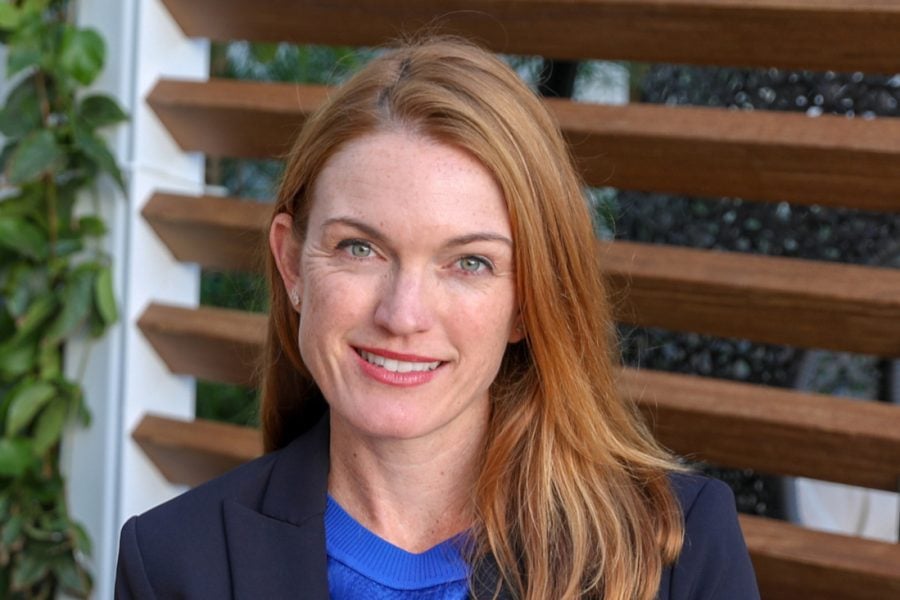Megan Jones Bell discusses mental health initiatives at Google
Photo courtesy of the Center for Behavioral Intervention Technologies
Megan Jones Bell spoke about Google’s partnership with the National Alliance for Mental Health during an event Tuesday.
January 11, 2023
Google’s Clinical Director of Consumer and Mental Health Megan Jones Bell spoke on the technology company’s mental health initiatives as a part of the Center for Behavioral Intervention Technologies’ digital mental health series.
“We believe that there are unique ways that Google can support people at every stage of their journey,” Jones Bell said.
The series hosts events each month during the academic year and aims to cover topics like clinical research, human computer interaction and healthcare.
The series has run since 2020.
“(Jones Bell) really was one of the first psychologists, I think, who made her career in industry,” Center for Behavioral Intervention Technologies Director David Mohr said. “She has a remarkable breadth of expertise in clinical science and design and an industry leadership.”
Jones Bell used Google search and information data to demonstrate that the mental health crisis is worsening. She said working with mental health does not refer to just disorders, but also well-being.
While there is a shortage of mental healthcare providers, there are also problems with quality, Jones Bell said. She added that many providers do not use “evidence-based treatments” and that the cost of healthcare in the U.S. makes these services inaccessible.
“There’s a lot of room for improvement that we need to make as a field in terms of more compassionate, humane care … especially at the more severe end of the care spectrum,” Jones Bell said. “We know that these are enormous problems — they’re complex, they’re interconnected. A single point of intervention is not going to be sufficient.”
Jones Bell mentioned that YouTube partnered with National Alliance on Mental Illness to create selections of videos that highlight clinically approved informative content about mental disorders and personal stories.
Shel also discussed the multitask unified model, an artificial intelligence system designed to more accurately suggest mental health crisis lines in Google searches. She said the model is Google’s most complex artificial intelligence system.
Google has also been working with NAMI to promote clinically validated self-assessments for different mental health conditions. The company donated $5 million to the Trevor Project, a nonprofit dedicated to providing mental health services to LGBTQ+ youth and has been working with the platform to improve the efficacy of its services. As part of these efforts, the Trevor Project now has an artificial intelligence-based system to prioritize “high risk” callers, according to Jones Bell.
Adam Goodkind, a seventh-year ph.D. candidate in human-computer interaction, attended the event and praised how thoughtful each of the solutions Jones Bell outlined were.
“Google’s ecosystem touches on so many areas of our lives, and they’re really using that to their advantage to improve our overall health,” Goodkind said. “What further impressed me, though, was how well thought-out each initiative is, where Google has thought through so many aspects of it, so that they can deliver an effective intervention.”
Email: kaavyabutaney2026@u.northwestern.edu
Twitter: @kaavya_butaney
Related Stories:
— Evanston youth speak out on mental health, school safety in community town hall
— Students react to virtual mental health service TimelyCare
— Mental healthcare providers reflect on Evanston’s public resources this World Mental Health Day



